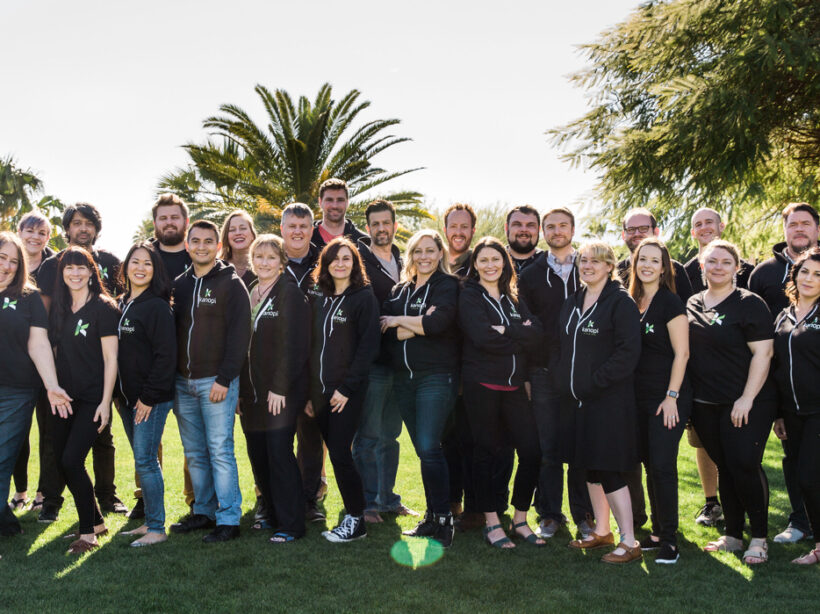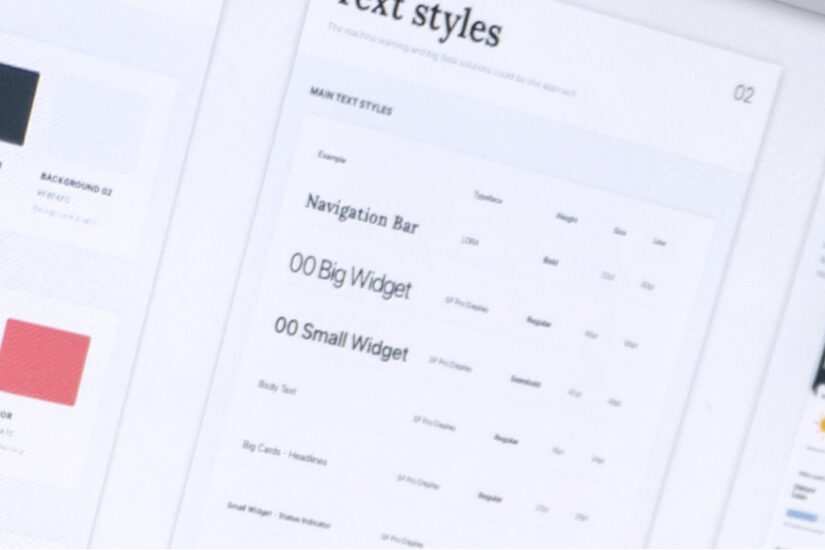At Kanopi, we strive to be inclusive in as many ways as possible: from our hiring practices, to accessibility within our documents and website, to social media. We also work as a company to make our verbal communications inclusive. Some everyday phrases have problematic origins, and we may not have awareness of that. The following lists contain phrases/words that are problematic, some suggestions for what to use instead, and some links that explain more.
As many of these phrases have been used for decades, a person using problematic language may be unaware of the issues surrounding particular words or phrases. So we suggest giving the individual the benefit of the doubt (within reason, of course), talking to that person about the word or phrase by approaching them privately, telling them what you noticed, your understanding of why the word or phrase is problematic, and suggesting alternate language they might use to get their point across.
Trigger Warning: the following content includes examples of abelist, gendered, racist, and gatekeeping language. While some examples may be specific to the US or to Canada, we realize that this is an evolving list that can and will grow and change over time.
Ableist Language
Ableist language encompasses words and phrases that deliberately or accidentally hurt individuals who live with disabilities. Rather than using ableist language, we strive to use people-first language.
Resource: https://gcdd.org/news-a-media/people-first-language.html
| Problematic Language | Use Instead |
|---|---|
| Lame | Stodgy | Tacky | Cheesy |
| Crazy | Insane | Schizophrenic | Hysterical | Manic | Psycho | Spaz | Moron | Unbelievable | Silly | Preposterous | Illogical | Irrational | intense | Wild | Vehement | Impassioned | Piercing |
| ADHD | Unfocused |
| OCD | Tidy | Organized |
| That’s so gay… | Cheesy | Tacky |
| Blind to, deaf to | Didn’t understand | Couldn’t perceive |
| Retarded | Silly | Confusing |
| Click (when referring to mouse action) | Select |
| See URL | Visit URL |
| Suffers from…. | Lives with… (ex: “Suffers from Aids” versus “Lives with AIDS”) |
| Bingeing | Indulged | Satiated | Spree | Wallowed |
Gendered Language
Resource: https://writingcenter.unc.edu/tips-and-tools/gender-inclusive-language/
| Problematic Language | Use Instead |
|---|---|
| Umbrella terms like “homosexual” or “gay” | Use LGBTQIA or LGBTTIQ2S |
| Brother or sister | Sibling |
| Man the booth | Staff the booth |
| Mankind | Humankind |
| Guys or Dudes (as in, “Hey guys!”) | Hey everyone | Y’all | Folks or Folx |
| Pronouns (she/her or he/him) | Neutral pronouns (they/them), or use the person’s name |
| Layman | Layperson |
Pronouns
Not every person identifies as part of a gender “binary” (meaning, either male or female). Gender identity and expression fall upon a broad spectrum, and individuals may identify anywhere on or outside of that spectrum. Non-binary individuals may identify as gender fluid, agender (without gender), genderfluid, genderqueer, or something else entirely. Knowing this, we should never assume a person’s gender identity strictly based upon the clothes they wear, the timbre of their voice, or even their physical attributes.
One way that we can be clear about our own gender expression (if we are comfortable doing so) is to name our pronouns. We can do this in conversation (“My name is XXX, and my pronouns are XX/XX”), through our email signature, Slack profile, Twitter handle — there are many avenues! What’s more, by identifying our own pronouns, we may make another person feel comfortable identifying their pronouns for us.
If you are not clear on a person’s pronouns, or the information is not presented by the person, it is also okay, when speaking to someone, to ask for their pronouns. Some ways to do this might be to simply say: “What pronouns do you use?” or “What pronouns should I use for you in this space?” or “My name is [NAME], and my pronouns are [XX/XX]. What about you?”
Racist and Colonialist Language
| Problematic Language | Use Instead | Resource |
|---|---|---|
| Peanut Gallery | hecklers, interrupters, botherers, cheap seats | Link |
| White Trash, Redneck | Link | |
| Inner City, Urban | low-income city, high-need locale, metropolitan population, city-dwellers | Link |
| Ghetto, Ghettoblaster | Link | |
| Grandfather (as in, “grandfathered in”) | Legacy, old rule, inherited, precedent | Link |
| Gyp, Gypped | Ripped off, cheated, conned, swindled, shortchanged, bamboozled | Link |
| Master | Slave | Leader | Follower, Teacher | Student, Parent | Child | Link |
| Indian give(r) | Ungifted | Link |
| No can do | Long time no see | Me likey | I can’t, I cannot | I haven’t seen you in a while | I like it | Link |
| Spirit Animal | “Patronus” (Harry Potter reference), familiar, raison d’être / reason for living, kindred spirit | Link |
| Paddy Wagon | Police vehicle | Link |
| Call a spade a spade | tell it like it is, it is what it is, “if it looks like a duck and it sounds like a duck, it is probably a duck” | Link |
| Colored (people) | People of Color | Link |
| Sherpa | guide, coach, commander, leader | Link |
| Guru | expert, virtuoso, authority, maestro, captain | Link |
| Ninja | expert, ace, virtuoso, maven, jedi | Link |
| Nazi | authoritarian, absolutist, boss, stickler | Link |
| Scalped | robbed, hustled, fleeced, pulled a fast one | Link |
| Tribe | group, crew, squad, community, circle | Link |
| Powwow | chat, brainstorm, ideate | Link |
| Hip Hip Hooray! | Hooray! (“Hip hip” is the problem) | Link |
| Eenie Meenie Miney Mo | flip a coin, ask a friend, just make a decision without singing. | Link |
| Moron | fool, doofus, nitwit | Link |
| Nomad / digital nomad | remote worker, location-independent worker | Link |
| Tipping Point | boiling point, reached the limit, crossroad, the final straw.” | Link |
| The “ok” Emoji and/or Hand Gesture | The “thumb’s up” Emoji and/or Hand Gesture | Link |
| Low Hanging Fruit | Quick Wins, easy tasks | Link |
| Spooky | Creepy, scary, frightening | Link |
| Savage | Fierce, cruel, violent. In some contexts, this is used as a synonym for “expert” – in those instances, use expert, ace, virtuoso, maven, jedi | Link |
| Stakeholder | investor, sponsor, partner, collaborator, colleague, associate, participant | Link |
Gifs and Digital Blackface
“Digital blackface” describes the act of producing, posting, or circulating ‘black reaction gifs’ online and especially on social media threads. The practice is problematic because it re-enforces stereotypes of Black Americans as exaggeratedly comic personae, or, especially in the case of women, as archly sassy, but in a way that does not detract from their fundamental availability to the project of white identity construction. Several good articles about digital blackface can be found here, here, and here.
So, as a practice, reaction gifs are fine to use, but be mindful of the individuals pictured within those gifs, and the big-picture message the content you choose may be sending.
“Knowledge Gatekeeping” Language
Knowledge gatekeeping relates to an assumption of another’s level of understanding and/or education level, and inferring a level of ease as a result (for example: “It’s so easy” “as simple as”).
| Problematic Language | Why It’s Problematic |
|---|---|
| “It’s so easy” | This assumes the recipient’s skill level |
| “Common knowledge” | This assumes a level of education or exposure to information |
| “Wait, you have never used a [Git client]?” | This not only assumes a level of education or exposure to information, but it discourages folks that are new to a concept from speaking up or reaching out for help. |
Evolving from Violent Language
Credit to Anna Taylor for this compilation, and posted with her permission.
| Problematic Language | Use Instead |
|---|---|
| “We’re going to pull the trigger.” | “We’re going to launch.” |
| “I’ll take a stab at it.” | “I’ll take a pass at it.” |
| “Did we jump the gun?” | “Did we start too soon?” |
| “I’ll bite the bullet.” | “I won’t avoid it any longer.” |
| “What’s the deadline?” | “What’s the due date?” |
| “We have to pick our battles.” | “We have to choose our opportunities.” |
| “Can you shoot me an email?” | “Can you send me an email?” |
| “That was overkill.” | “That was a bit excessive.” |
| “I bombed the presentation.” | “I didn’t do my best.” |
| “Let’s roll with the punches.” | “Let’s move forward.” |
| “We can soften the blow by …” | “We can make it a little easier by …” |
| “I’m going to take a shot in the dark.” | “I’m going to take a guess.” |
| “Let’s not beat a dead horse.” | “Let’s not focus on that anymore.” |
| “I was blown away by her presentation.” | “I was impressed by her presentation.” |
| “I was kicking around an idea.” | “I was thinking through an idea.” |
| “He’s a straight shooter in meetings.” | “He’s pretty direct in meetings.” |
Microaggressions
“Microaggression” is a term used for commonplace verbal, behavioral or environmental slights, whether intentional or unintentional, that communicate hostile, derogatory, or negative attitudes toward stigmatized or culturally marginalized groups. The Micropedia is a wonderful and beautifully designed website that outlines what these look like, gives an opportunity to offer suggestions, and gives advice on how to address them.
Other Resources
Disability Language Style Guide by the National Center on Disability and Journalism
Inclusive Language Guide from Educause









